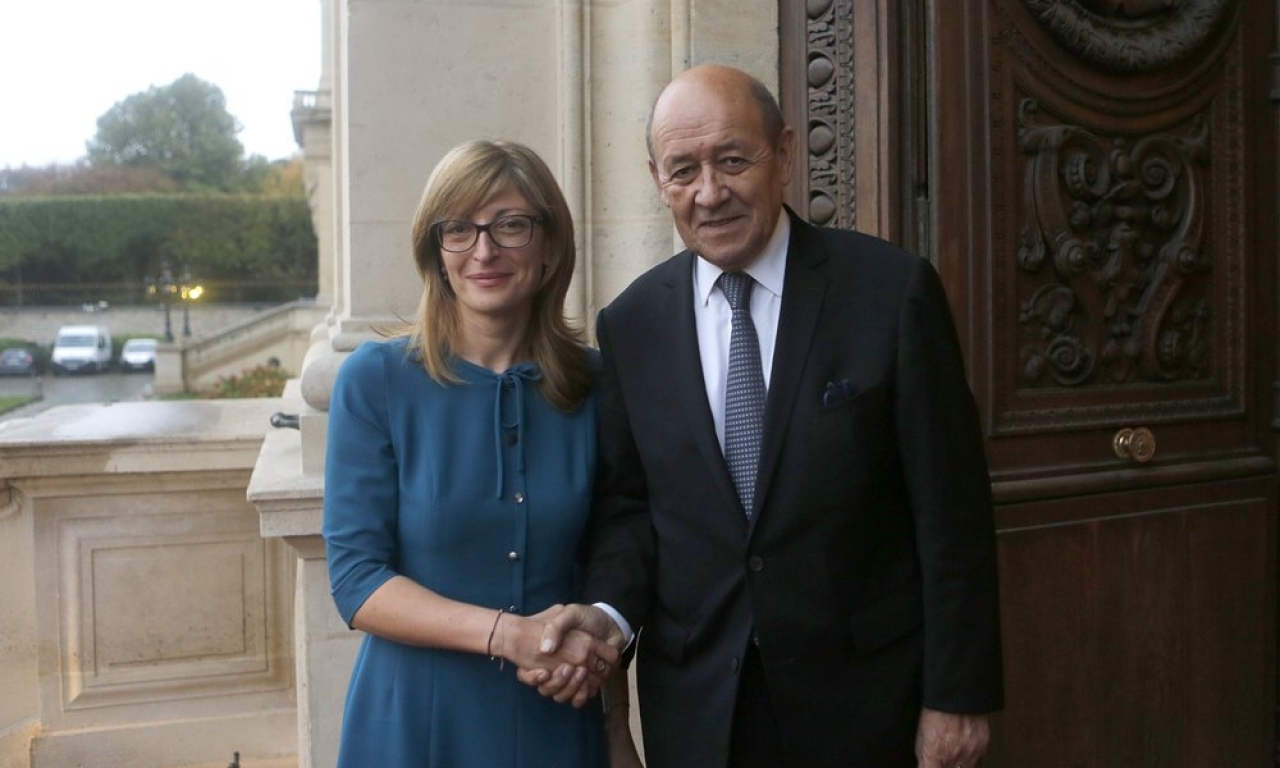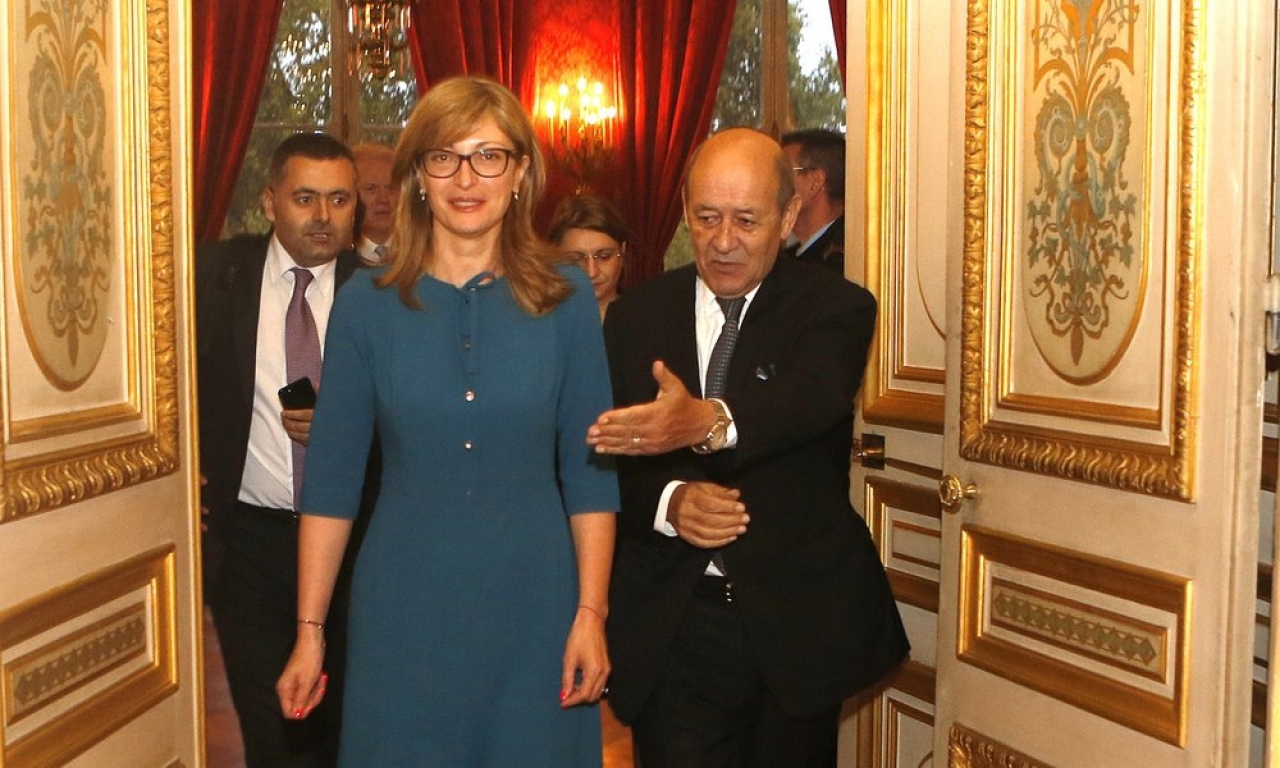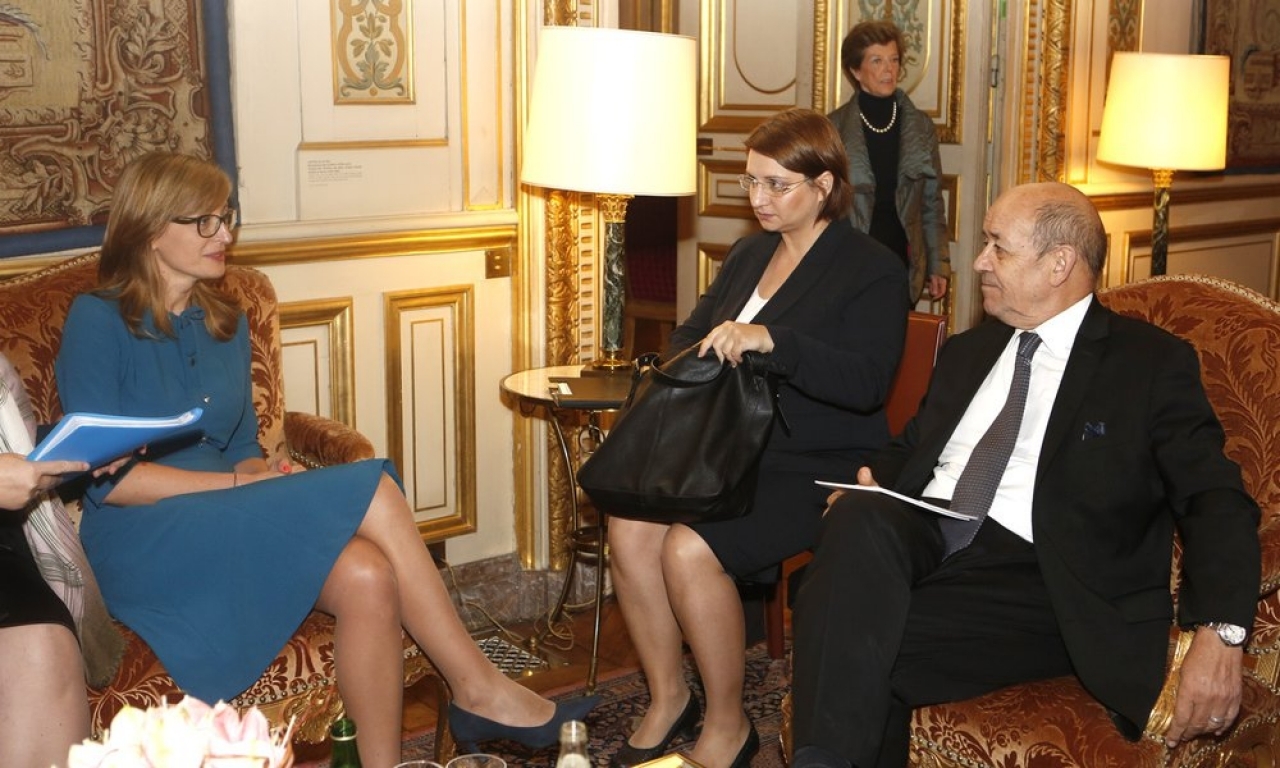France: “Your Presidency is exceedingly important, we are on your side”
24 October 2017 News
“I am very happy to welcome you on the eve of the Bulgarian Presidency of the EU Council and as a follow-up to President Macron’s meeting with Prime Minister Borissov. The future of Europe is among the key topics. Your Presidency will be exceedingly important, and we are at your disposal for everything you need.”
It was with these words that the chief diplomat of the French Republic, Jean-Yves Le Drian, welcomed the Bulgarian Minister of Foreign Affairs Ekaterina Zaharieva at the Quai d’Orsay. Zaharieva is paying a two-day visit to Paris.
“We count on your expertise and support during the Presidency. In addition to the future of the EU, I would include among the important topics the Common Security and Defence Policy, on which we expect tangible progress, as well as the common asylum policy, on which our two countries hold similar positions,” Zaharieva said. She stressed that the Bulgarian Presidency will probably have to cope with some 200 open dossiers, but the Bulgarian teams are already working together with the Estonian ones for a seamless transition between the two presidencies.
“We carefully followed President Macron’s speech at the Sorbonne. Bulgaria wants to be a part of all integration processes, and our population is most pro-European,” Minister Zaharieva said. “We realise that we are not entirely ready for some of these integration processes like the Eurozone, but I do thank you for backing our entry into ERM II. I liked the message that those who are not ready should get an assistance mechanism. I am also grateful for your steady support for the judicial reform.”
Bulgaria also supports President Macron’s initiative that citizens should be consulted on the future of Europe and will organise discussions on this subject.
“I am certain of your country’s commitment and of your desire that the Union should become even more solid during your Presidency. It will be a great pleasure working with you. We support the Bulgarian Presidency and your positions on the asylum policy. It is necessary to set up a reception mechanism right at the border so as to respect the solidarity principle after that. Thus, refugees rather than economic migrants will be granted asylum,” Minister Le Drian said.
The Bulgarian and the French Foreign Ministers concurred that people expect tangible action from European politicians. “The EU’s inability to make quick decisions has led to an upsurge of Eurosceptic and populist parties. Bulgaria was probably the only external border at which every refugee was registered according to the Dublin Regulation. We are glad that the European Border and Coast Guard Agency (Frontex) began its operation from Bulgaria,” Zaharieva said.
She presented Bulgaria’s principal foreign policy priority, which is in particular a priority of the Bulgarian Presidency as well: the integration of the Western Balkans. “The region has a population of 22 million. In some of the countries, youth unemployment approximates 60 per cent. We must clearly say whether we want those people to be part of our family or we will rather continue to have an unstable 22-million-strong region at the heart of Europe,” Zaharieva said.
The Bulgarian Deputy Prime Minister also conferred with the Minister of Justice of the French Republic Nicole Belloubet. Zaharieva presented to Belloubet the Bulgarian Presidency priorities in the field of justice: institutionalisation of the European Public Prosecutor’s Office (EPPO), intensified integration in civil law, progress of the online sales dossiers, and the common asylum policy. “We accept President Macron’s idea that the EPPO should investigate complicated cross-border terrorism cases in addition to financial fraud,” Zaharieva said. The Bulgarian Deputy Prime Minister presented the reforms carried out so far: amending the Constitution and the organic Judicial System Act to guarantee magistrates’ independence and impartiality, revising criminal procedure to make the administration of justice speedier and more effective, as well as the planning a judicial map, which will balance the caseload and, hence, the quality of the judicial instruments rendered.
“We in France, too, continue to work in this direction and we are drafting constitutional amendments to improve judges’ independence,” Minister Belloubet said. “I would like to assure you that if you need it, we can provide you with expert assistance through the National School for the Judiciary and through the Inspectorate-General of Judicial Services, which is an independent body under the Minister of Justice. We, too, are hearing demands that the inspectorate should be transferred to the High Council of the Judiciary.”
The two Ministers discussed the progress of the various justice dossiers, including the exchange of data from electronic service providers for the purpose of combating cybercrime and an improvement of the operation of European Criminal Records Information System (ECRIS).




